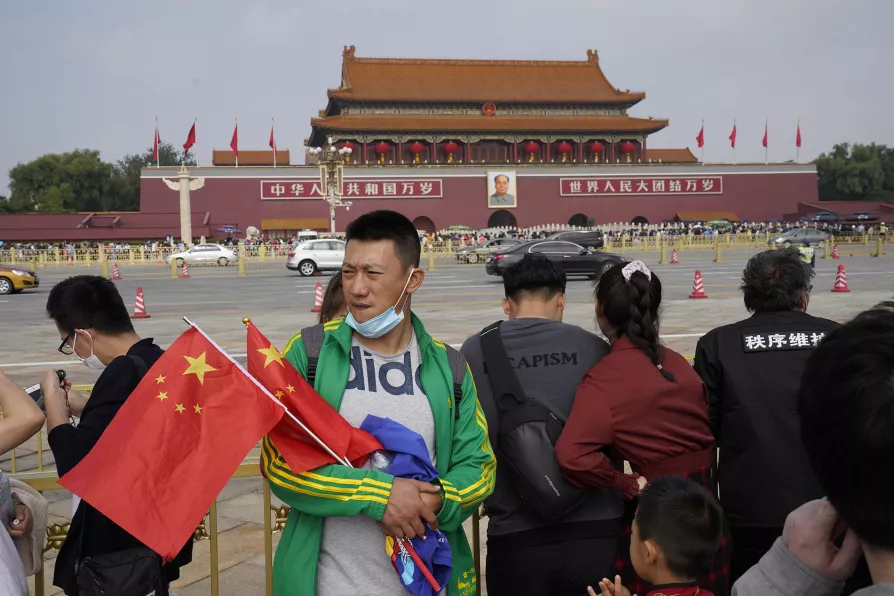The PM says Mandelson 'betrayed our values' – but ministers and advisers flock to line their pockets with corporate cash, says SOLOMON HUGHES
China's Five-Year Plan goals being achieved despite Covid-19
by ROBERT GRIFFITHS

 Tourists visiting Tiananmen Square
Tourists visiting Tiananmen Square
THE primary aim of China’s 13th Five Year Plan (2016-20) was to replace “unbalanced, unco-ordinated, and unsustainable growth” with innovative, co-ordinated, green, open and inclusive growth in order to create a “moderately prosperous society in all respects.”
The target was to achieve annual GDP growth of 6.5 per cent — amended upwards in 2016 for flexibility — which would double people’s average disposable income.
Despite the impact of the Covid-19 pandemic, it remains possible that this can still be met thanks to slight overfulfilment during the plan’s first three years.
Similar stories

Ben Cowles speaks with IAN ‘TREE’ ROBINSON and ANDY DAVIES, two of the string pullers behind the Manchester Punk Festival, ahead of its 10th year show later this month
Read Sisters, the journal of the National Assembly Of Women, below.

ANDY HEDGECOCK relishes two exhibitions that blur the boundaries between art and community engagement

JAN WOOLF wallows in the historical mulch of post WW2 West Germany, and the resistant, challenging sense made of it by Anselm Kiefer











